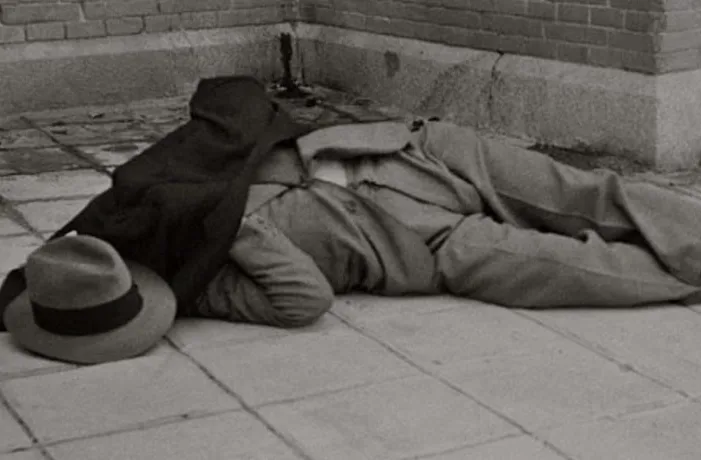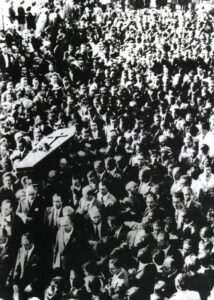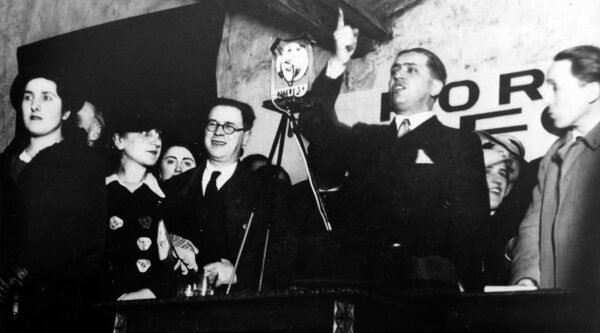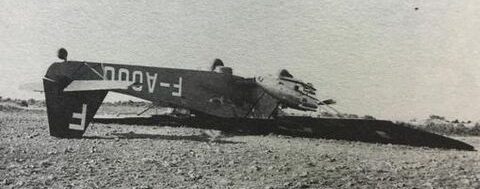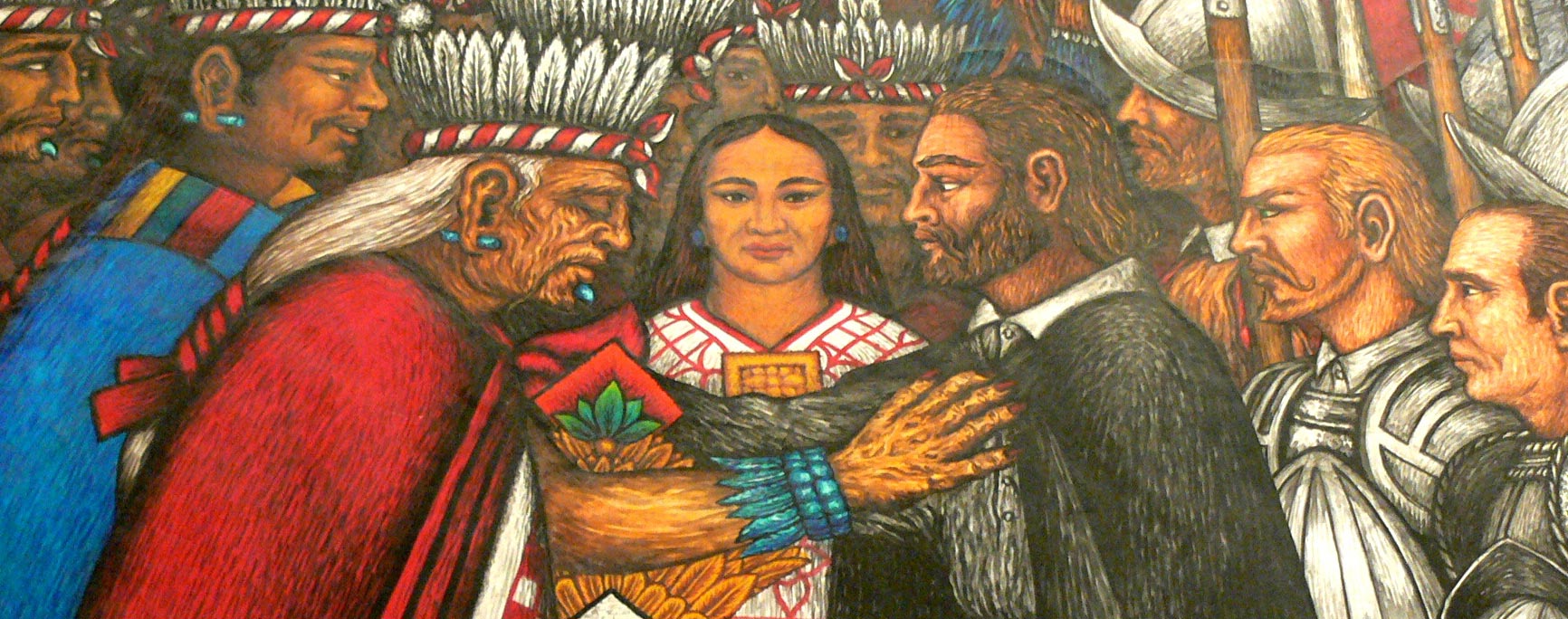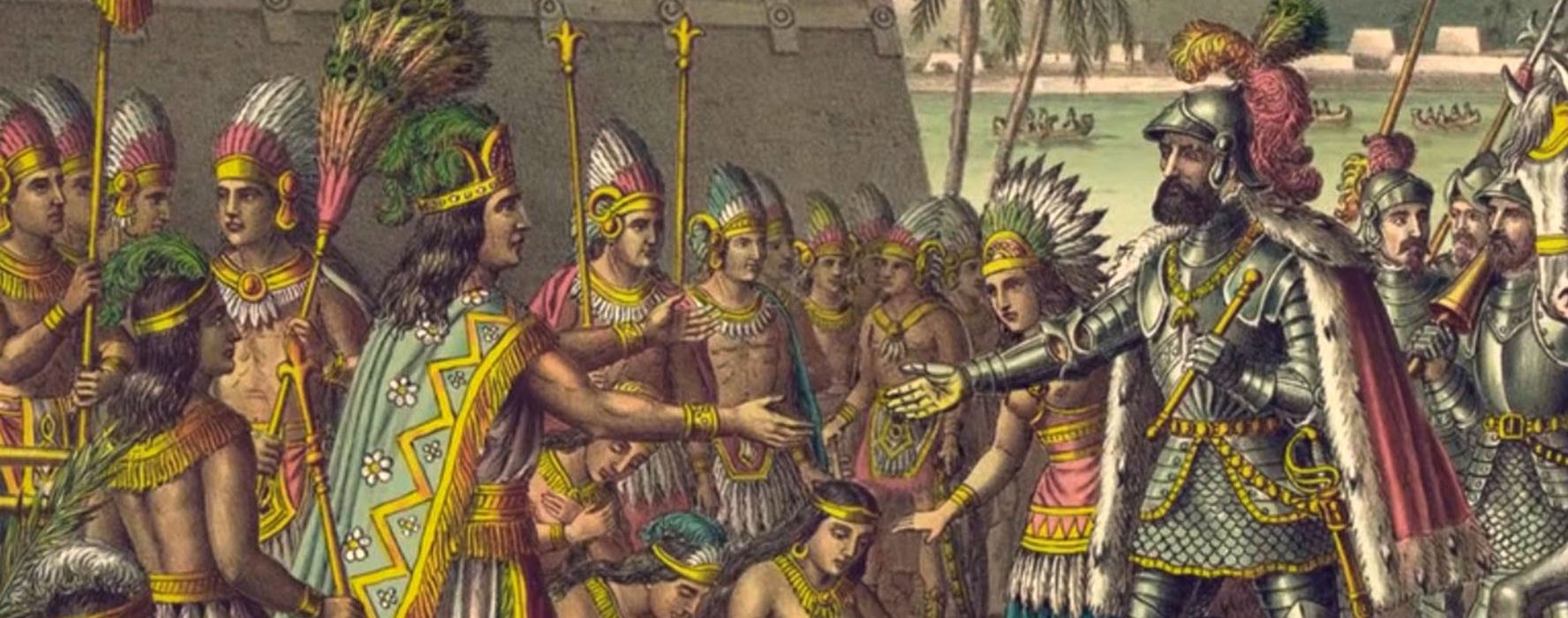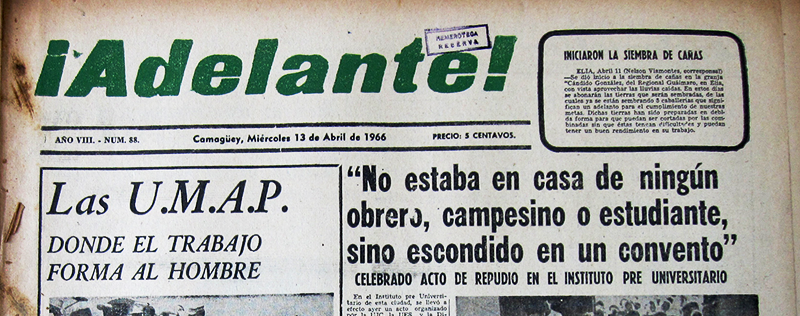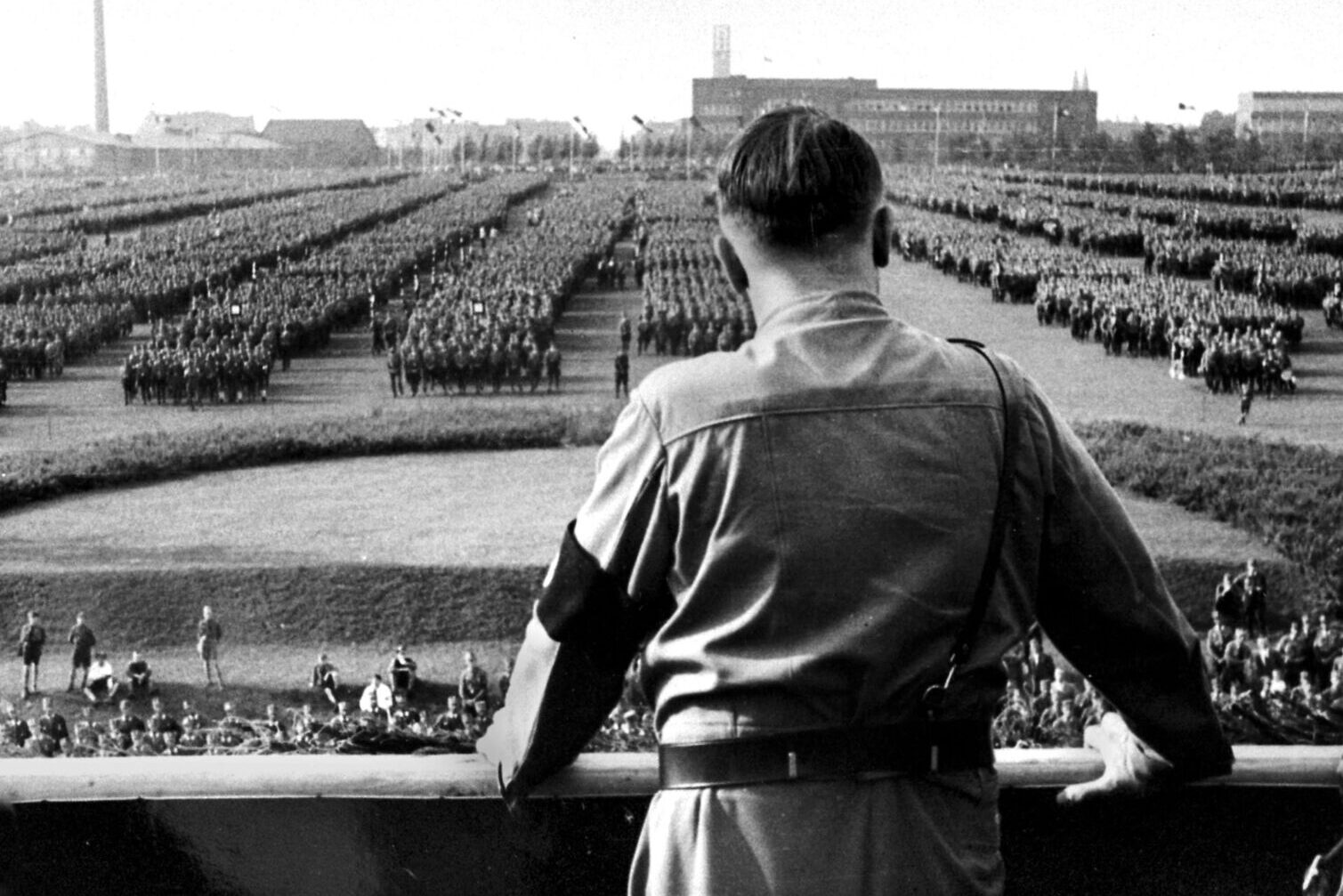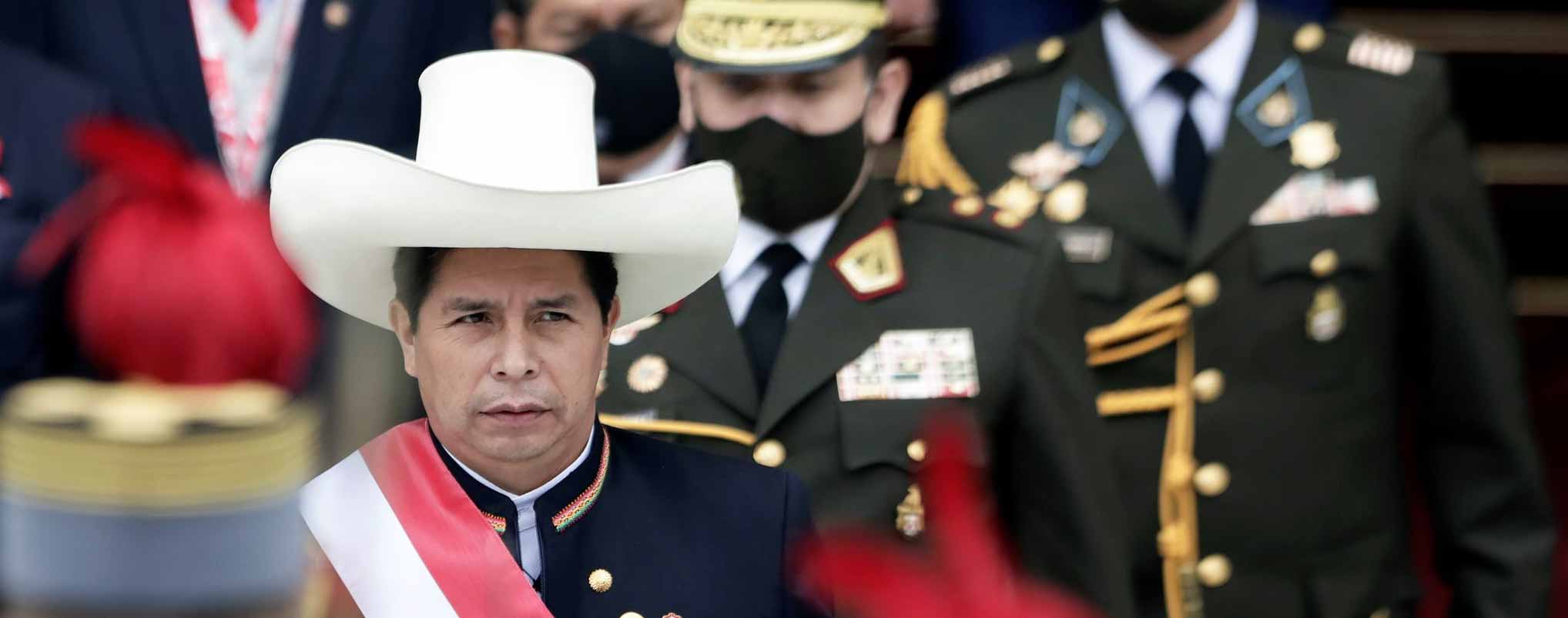Source:Libertad Digital
The assassination of the monarchist deputy José Calvo Sotelo is presented as a minor event because historiography refuses to acknowledge the pre-revolutionary situation Spain was suffering as a result of the Popular Front.
In a country where left-wing terrorists had assassinated three prime ministers between 1897 and 1921 and in 1934 staged the largest revolutionary uprising in Western Europe since the Bolshevik revolution (with some 1,400 dead), in which between mid-February 1936 and mid-July of that year around 330 people had died for political reasons (in Germany, which was much more populated, in the fights between the Reds and the Browns, 17 Nazis and 44 Communists died in 1930, 42 Nazis and 52 Communists in 1931 and 84 Nazis and 75 Communists in 1932), the assassination of the royalist deputy José Calvo Sotelo by a terrorist commando of policemen and PSOE militants may seem a minor event. And this is how the same sector of historiography that refuses to acknowledge the pre-revolutionary situation that Spain was suffering as a result of the Popular Front tries to present it. This was the effect that the assassination of Calvo Sotelo had on people, as described by Stanley Payne (The First Spanish Democracy):
As soon as the facts became known, the entire right wing and many moderate elements were convinced that it constituted the most decisive and mind-boggling proof of all the accusations made about the political partisanship of the administration of public order. In the entire history of parliamentary regimes it had never happened before that a leader of the parliamentary opposition had been assassinated by a detachment of the national police.
Socialist gunmen on punitive expeditions
The circumstances of his assassination are well known. Death threats in the Parliament from Socialist and Communist deputies and even the President of the Government, Santiago Casares Quiroga. Growing violence in the streets, encouraged and condoned by the Government and the Popular Front parties, one of the episodes of which was, on the night of 12 July, the murder by unknown gunmen of Lieutenant José del Castillo, a Socialist militia instructor who had been reinstated after having been expelled for taking part in the 1934 revolution. Formation in the Pontejos barracks of the Assault Guard, with the permission of the authorities of the Ministry of the Interior, of commandos with lists to arrest Falangists and right-wingers. One of these terrorist commandos, led by Guardia Civil captain Fernando Condés and made up of socialist gunmen, got into van number 17.
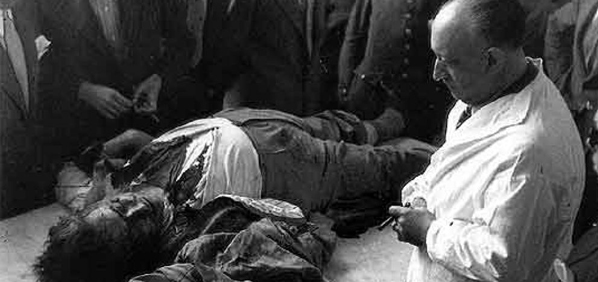
Calvo Sotelo’s body
In the early hours of 13 July, the commando broke into the home of Calvo Sotelo (Velázquez, no. 89), who had four children. Condés’ credentials won out over the MP’s bodyguard. In the van, the socialist gunman Luis Cuenca, Indalecio Prieto’s bodyguard and “delegate” of the Interior in the repeated elections in the province of Cuenca, shot him in the back.
On the right, the reaction was one of astonishment and also of determination: the military conspiracy organised by General Emilio Mola, hitherto hesitant, was strengthened. Both the Carlists and General Francisco Franco forgot their demands and the latter his precautions, and became fully involved in the uprising.
The Government did not pursue the suspects
On the occasion of the eightieth anniversary of the assassination of Calvo Sotelo, we would like to highlight the complicity of the Popular Front in that crime. What did the Government and the FP do in the face of such an act of terrorism?
- The Government forbade newspapers to describe Calvo Sotelo’s death as an “assassination” and in a communiqué equated his assassination with that of Castillo.
- The Pontejos officers protested against all investigative measures and prevented the arrest of Condés. The Galician politician’s blood was washed from the van.
- Prieto and other prominent socialists such as Julián Zugazagoitia and Juan Simeón Vidarte protected Condés and Cuenca. Condés was hidden in the house of the Socialist deputy Margarita Nelken. When he found out about the assassination, Zugazagoitia said: “This attack is war”.
- The government prohibited Calvo Sotelo’s body from being laid to rest at the Academy of Jurisprudence, of which he was president.
- On the same day that the body appeared, PCE deputies presented a draft decree-law (circulated by Mundo Obrero) to the rest of the Popular Front authorising the government to dissolve organisations of a “reactionary or fascist character” (all the opposition, except the PNV), to imprison without bail “persons known for their reactionary, fascist and anti-republican activities” and to confiscate the “reactionary” press.
-
On 14 July the funeral procession was shot at on its return from the burial by Popular Front gunmen, without the police intervening. Also in Madrid, an anarchist was killed in a scuffle between members of the UGT and CNT.
- At the meeting of the Permanent Deputation on the 15th, scheduled to extend the state of alarm for another month, the left-wing deputies again insulted those of the CEDA and the National Bloc. Gil Robles revealed that between 16 June and 13 July a further 61 politically motivated deaths had been committed, and he told the government: “You who are fomenting violence will be the first victims of it”. Prieto claimed that the assassination of Calvo Sotelo was a reaction to the Castillo assassination, thereby demeaning the police to the status of gunmen. As he was wont to do, the president of the Cortes, Diego Martínez Barrio, censored the speeches in the Diario de Sesiones.
- On the 15th, the newspaper Claridad published a statement by the Socialist Francisco Largo Caballero, who was in London: “Don’t you want this government? Then let it be replaced by a dictatorial left-wing government. Don’t you want a state of alarm? Then let there be a full-scale civil war”.
- On the 15th, the Director General of Security, José Alonso Mallol, declared that 185 local and provincial Falange leaders had been arrested throughout Spain, and on the 16th all right-wing party headquarters in Barcelona were closed.
- The Government removed the examining magistrate Ursicino Gómez Carbajo, who had been in charge of the investigation, from the case because of his independence. To a line-up requested by the judge, Mallol sent some 170 guards.
Retaliation against the lawyers
Measures to silence the assassination followed one after the other even when the uprising had begun. For some leftists it was more important to conceal the details of Calvo Sotelo’s death than to fight the military rebels.
Melquiades Álvarez, a Freemason, liberal and republican politician and former president of Congress, had been dean of the Madrid Bar Association since 1932. He had agreed to act as legal counsel for José Antonio Primo de Rivera (imprisoned in March by the leftist government for possession of weapons, when Prieto had drawn a pistol in the parliament) and had attended the funeral of Calvo Sotelo.
On 24 July, a group of lawyers linked to the Popular Front seized the Colegio. Days later, according to his granddaughter Sarah Álvarez de Miranda (Melquíades Álvarez, mi padre), a management committee was appointed, chaired by the politician Francisco López de Goicoechea, which dismissed him. This commission also approved the expulsion of the dozens of lawyers who had formed a protest against the assassination of Calvo Sotelo. Before the end of July, the government appointed López de Goicoechea as dean.
Álvarez’s fight against the dictatorship of General Primo de Rivera, his republicanism and his age (he was born in 1864) did not protect him from the “Marxist hordes”. The new director general of Security, Manuel Muñoz Martínez, of Izquierda Republicana (Azaña’s party), ordered his arrest on 4 August. On the night of 21-22 August he was murdered in one of the sackings of prisoners in the Modelo prison.
On 25 July a group of socialist militiamen broke into the Supreme Court and stole the case file opened for the assassination. The judicial investigations were carried out by the Nationalists at the end of the war and are recorded in the Causa General.
All of the above shows that the assassination of José Calvo Sotelo was an assassination for which the entire left was responsible. Even some leaders regretted not having gone in that van to pull the trigger. This is what the socialist Ángel Galarza proclaimed when the war had already broken out:
The assassination of Calvo Sotelo gave me a feeling. The feeling of not having taken part in the execution.
In 1936 there was no democracy in Spain even before 18 July.
Share this article
On This Day
- 1503 Battle of Cerignola (Italy).
- 1522 Santiago de Cuba is granted the city status by Carlos I.
- 1589 Margarita de Saboya is born.
- 1611 Archbishop Miguel de Benavides founded the University of St Thomas in Manila.
- 1777 José Primo de Rivera, Hero of the Sieges, was born in Algeciras.
History of Spain
26 August 2020
27 January 2021
Communism: Now and Then
23 December 2022
28 July 2021
